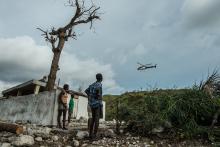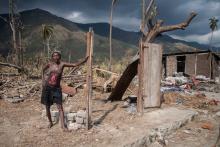Grieving Haitians Go Into Debt to Fund Funerals
When I was living in Haiti many years ago, a friend's father passed away. My friend was scraping by on odd jobs and needed to take out a large loan in order to finance the burial. He felt that to do otherwise would be disrepecting his father's memory. The poor, who can least afford it, are charged exorbitant rates for burial services in Haiti. What could change this? Cultural change, such as accepting cremation or simplified burials, will take time. William Mellon (founder of Albert Schweitzer Hospital in Deschapelles) had himself buried in a cardboard box. Government regulation and enforcement would help. Below is an AP article on the hardships that burial costs place upon Haitian families.









